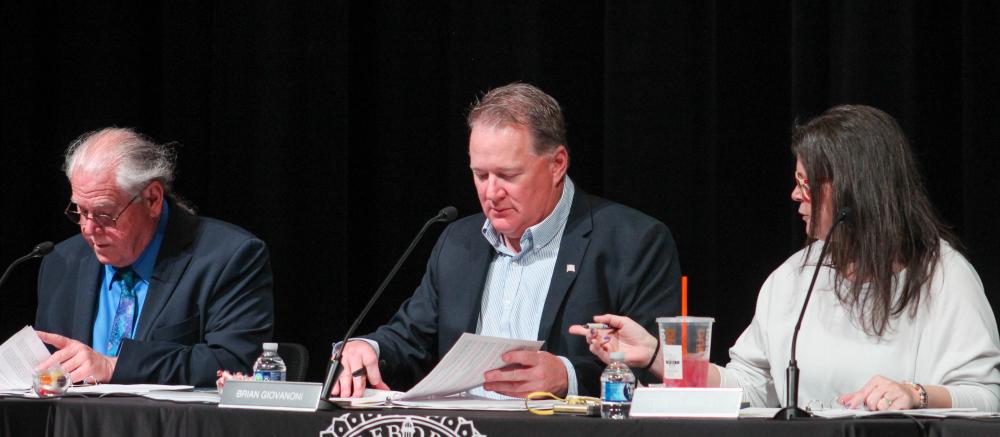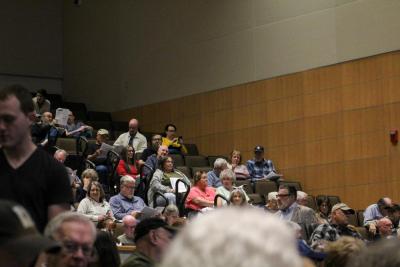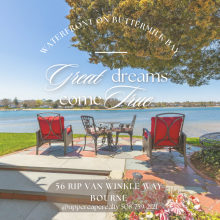From Town Meeting: Middleboro OKs budget, public projects, delays zoning change
MIDDLEBORO — Voters approved the $122.4 million town budget and several projects, while postponing action on a proposed zoning restriction, at the Monday, April 28 Town Meeting.
Notable items in the budget include $41.7 million for school spending, $13.05 million for public safety, $10.4 million for debt service and $24.9 million for town and school employee benefits and insurance.
The most expensive project approved this year was the creation of a new public park at 48 Wareham St. The park received $750,000 in funding, and construction will begin soon to transform the former Department of Public Works site into a recreational space.
Two projects from previous years received follow-up attention. Land distinctions for the new skate park, approved at last year’s Town Meeting, needed correcting. Voters also approved an additional $27,000 to install fencing, netting and other improvements at the Wood Street Ball Field. According to Town Manager Jay McGrail, the field will be open for the season this year.
Voters agreed to spend $45,000 on a feasibility study for the South Fire Station. Last year, voters approved $30,000 to construct a small living space for firefighters at the station. The new study will determine how best to expand its capabilities.
This year, the Planning Board asked voters to require site plan review for commercial buildings between 5,001 and 19,999 square feet. However, after lengthy discussion, Planning Board members Anders Martenson and Tracie Craig-McGee recommended postponing action on the restriction.
During debate, the board realized the proposal might conflict with a recent state law that changed zoning regulations across Massachusetts.
Some voters, including Select Board member Brian Giovanoni, raised concerns that requiring site plan review could restrict growth. Others argued the restriction was necessary to protect the “character and look of Middleboro.”
The proposed rule was less restrictive than those in most neighboring towns. Voters will likely consider it again at the next Town Meeting, once the Planning Board resolves the potential conflict with the state law.















